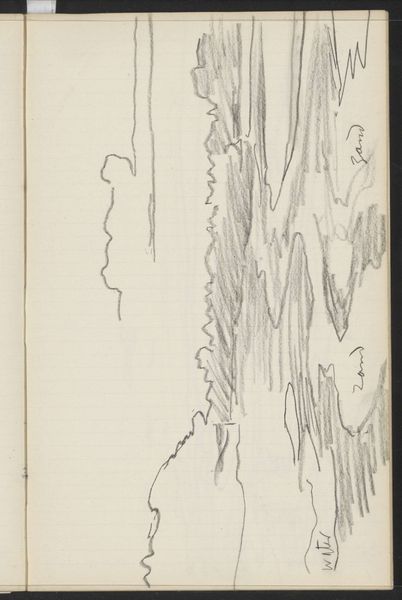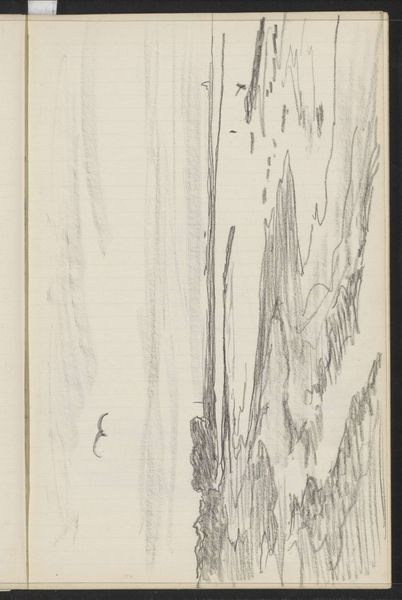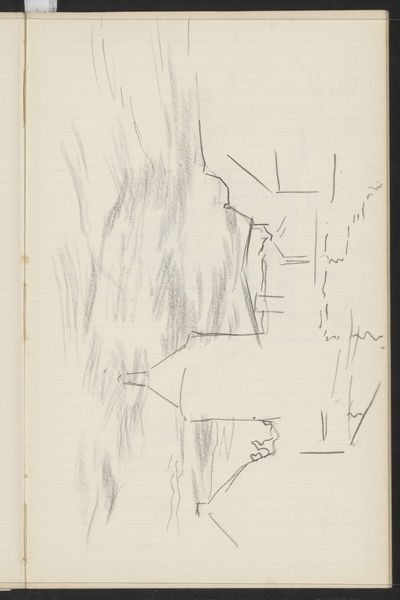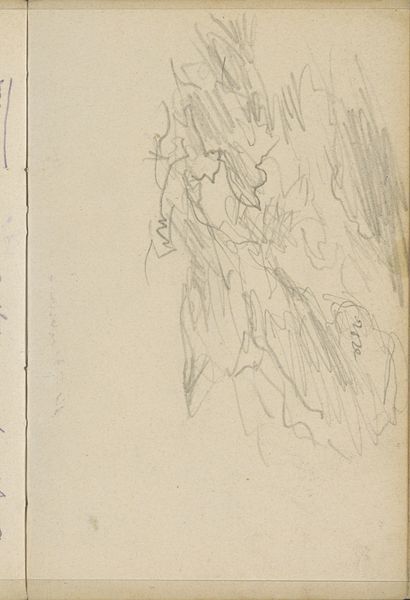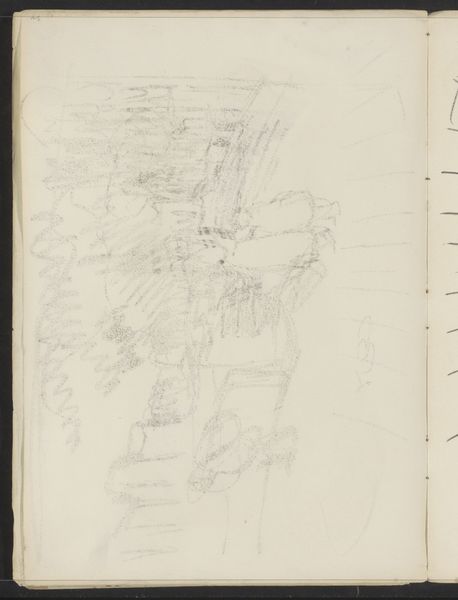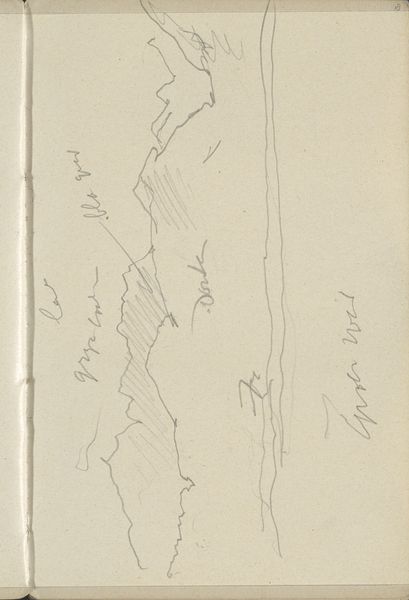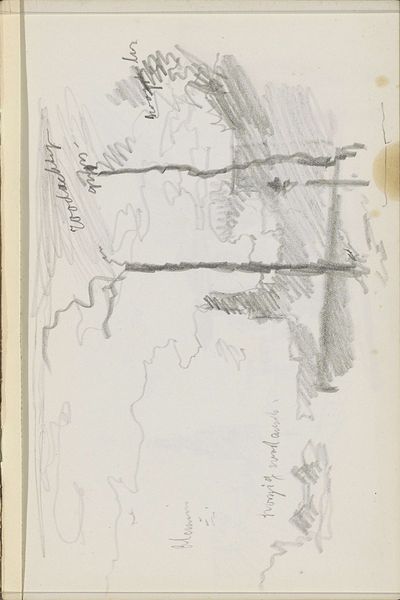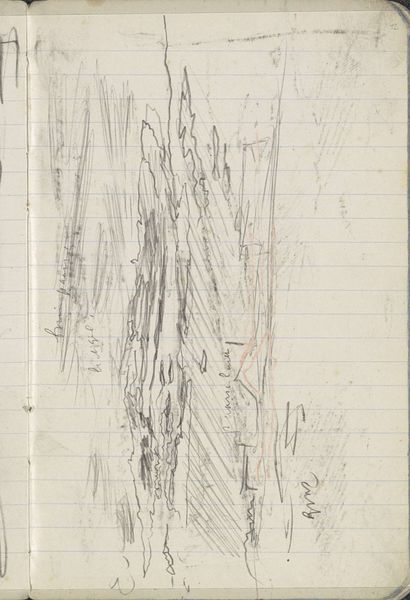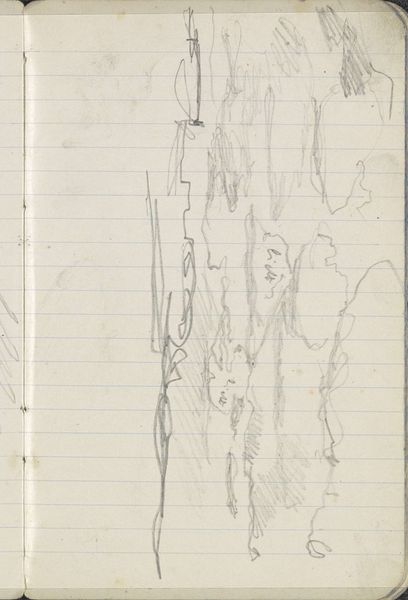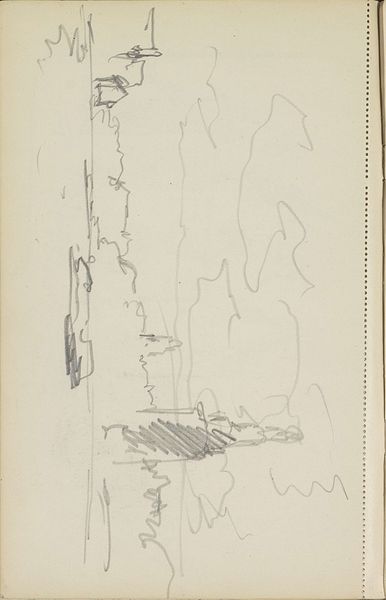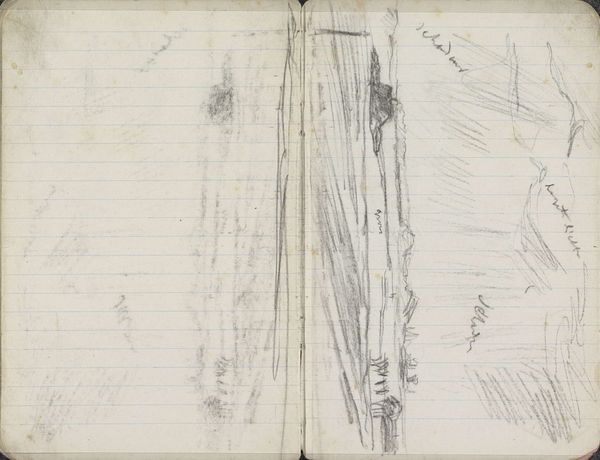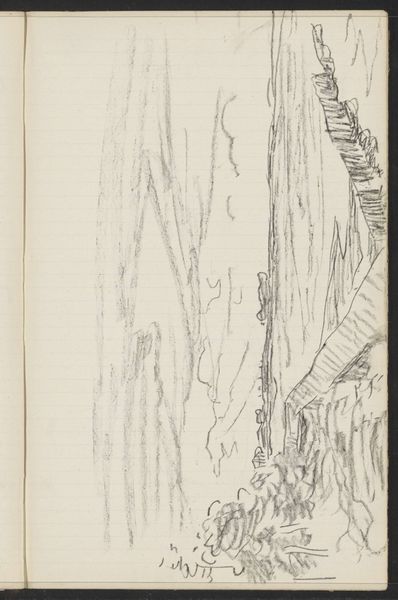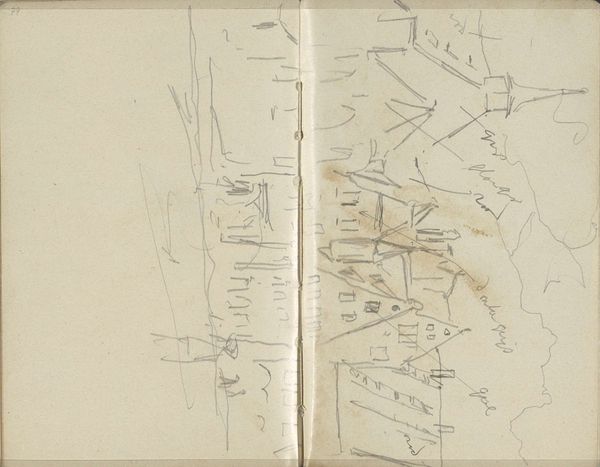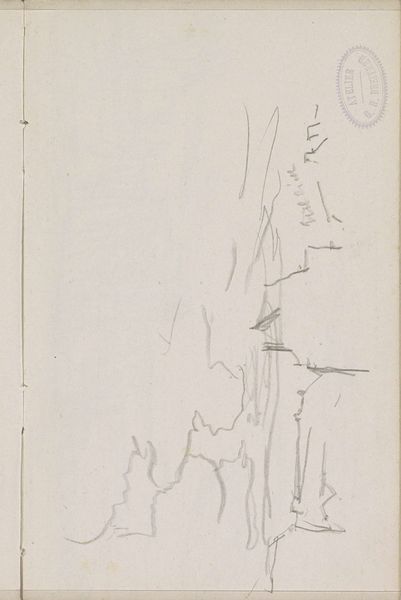
drawing, pencil
#
drawing
#
landscape
#
form
#
pencil
#
abstraction
#
line
Copyright: Rijks Museum: Open Domain
Editor: Here we have "Vlak landschap met water," a pencil drawing by Willem Bastiaan Tholen, made sometime between 1900 and 1931. It’s currently at the Rijksmuseum. It feels almost like a page torn from a sketchbook, capturing a fleeting impression. What do you see in this seemingly simple composition? Curator: The immediate sense is one of liminality, wouldn't you agree? These lines, seemingly erratic, represent more than just a physical landscape. They're archetypes, echoes of humanity's primal connection to the earth. Consider the vertical strokes – trees, perhaps? – and their psychological weight: aspiration, growth, the striving towards enlightenment, rendered in humble pencil. And the horizontal lines signifying water, suggesting reflection, the subconscious. Editor: Reflection in both senses, the literal mirroring and deeper introspection? Curator: Precisely! The starkness invites us to project our own memories, fears, and hopes onto it. Note the almost complete lack of detail; this is intentional, a void waiting to be filled by our personal narratives. Doesn’t the medium itself—pencil—lend to this effect, recalling childhood doodlings or tentative explorations? Editor: I see that now, it almost invites the viewer to complete the image in their mind's eye. It becomes a collaborative act, between the artist and the observer. Curator: Precisely, Willem Bastiaan Tholen created an artistic mirror, drawing upon collective imagery; and simultaneously he set us up for an individual journey of understanding. Editor: That makes me consider how different viewers, with varying experiences, might bring radically different interpretations to the drawing. Curator: Indeed. Which ultimately proves its cultural power, reflecting both universal symbols and personalized narratives through deceptively simple lines. Editor: Thank you, it’s now much more layered and complex than when I started looking at the artwork. Curator: And that is the beautiful burden art asks of us.
Comments
No comments
Be the first to comment and join the conversation on the ultimate creative platform.
